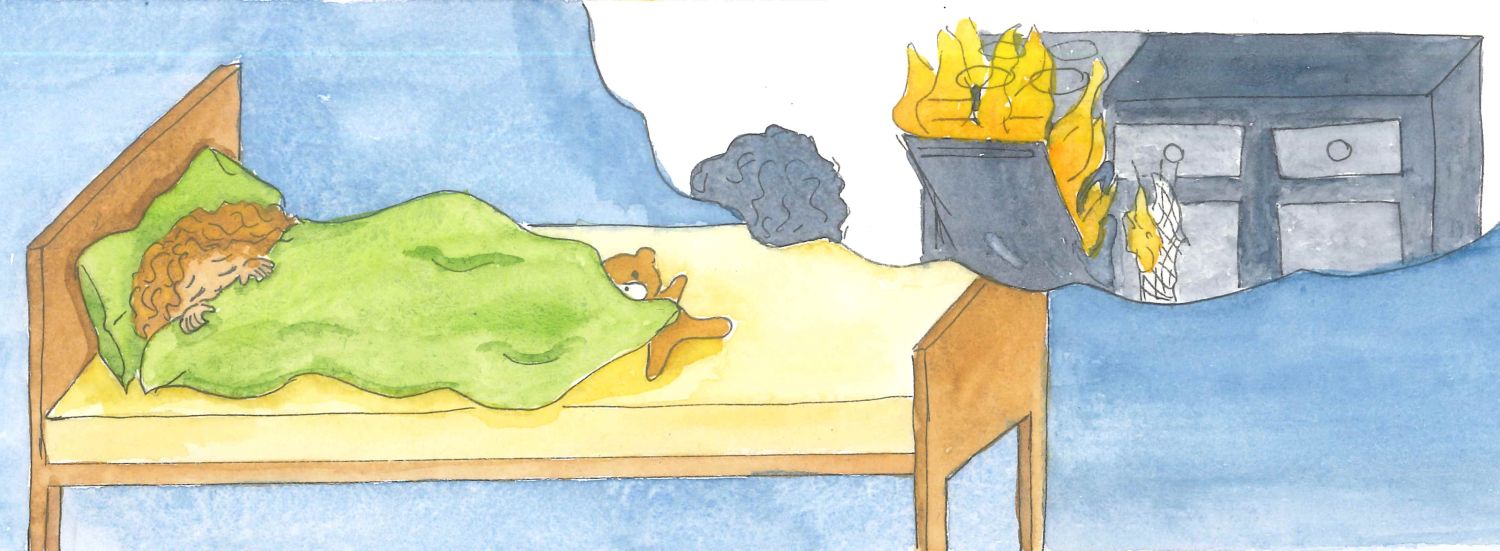After experiencing a traumatic event, it’s very common and normal that children have bad memories (trauma-related images, sounds, thoughts, etc.) that pop up at unexpected times. Children may also have more nightmares or display trauma-related play behavior.
Nightmares
- The content of the nightmares might not be connected with the traumatic event.
- Help your child to understand that nightmares are a normal reaction after a traumatic event and usually go away by themselves over a few weeks.
- If your child wakes up in the middle of the night because of a nightmare, make sure that they are really awake and soothe them. Help your child feel secure and help them to fall asleep again by helping them to think about something positive. Avoid detailed conversations about the traumatic event in the middle of the night.
- Sometimes it’s helpful to use a nightlight in the child’s room or to give your child their favorite cuddly toy.
Repetitive trauma-related play
- Many children find it particularly difficult to express their feelings and thoughts verbally. Often, it’s helpful for the child to express these by playing or drawing.
- If your child often plays the same trauma-related scene (e.g. accident), play with them and help them to find a happy ending (e.g. by protecting threatened figures).
- Let your child know that you and other adults protect them. Name concrete examples.
Frequent mentioning of the traumatic event
- It’s positive if your child wants to speak about the traumatic event. Listen to your child and speak with them about what happened to them.
- Allow your child to cry or to be sad; don’t expect them to be brave and strong.
- Don’t wait until your child speaks about the traumatic event by themselves. Instead, talk about the traumatic event yourself. But accept it if your child doesn’t want to speak about it.
- Pay attention to your child’s feelings. Ask them about their feelings and thoughts if they looks worried.
- Be careful not to show your own concerns and worries to your child and don’t talk about them with your child or in front of them.
Anxiety
- Give your child the opportunity to speak about their fears and worries and take it seriously. Agree with your child on a specific sign by which they can let you know that they are frightened and need your support.
- Be as calm as possible.
- Let your child feel safe and secure by giving a lot of affection and closeness and by playing and speaking with them more than usual.
- Be careful not to worsen or prolong your child’s anxieties. Instead, encourage your child to face fearful situations and praise your child when they succeed in doing so. Encourage and praise courageous behavior.
- Try not to show your own anxieties and concerns to your child, and pay attention that your child doesn’t hear them by chance, for instance while you’re speaking on the telephone.
- If you have to leave, let your child know where you are going and when you will be back. Be back at time.

